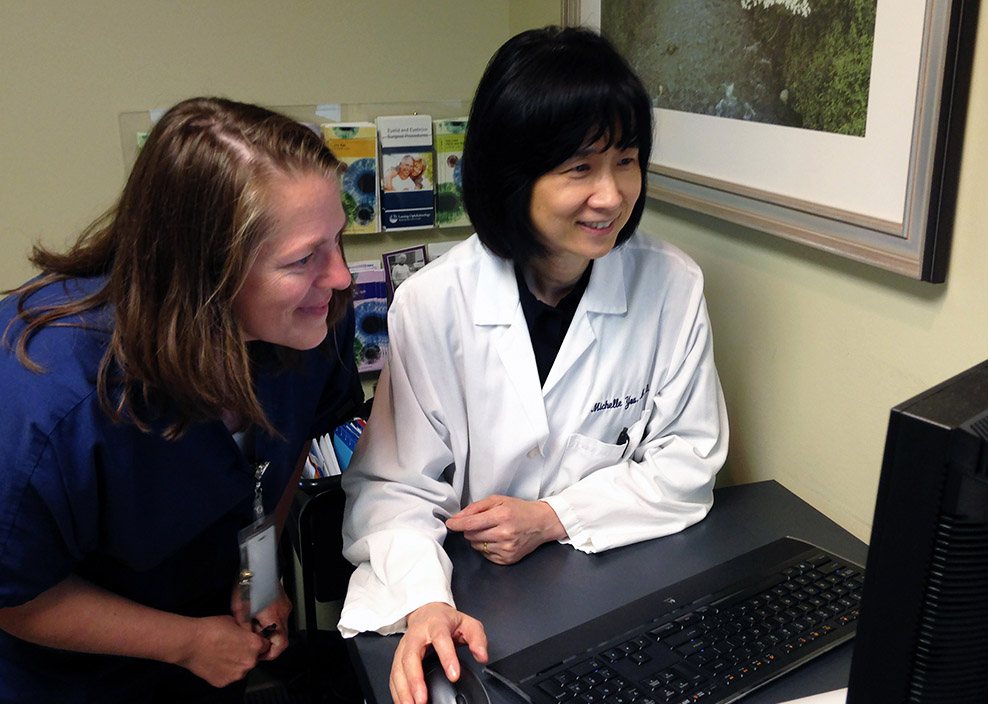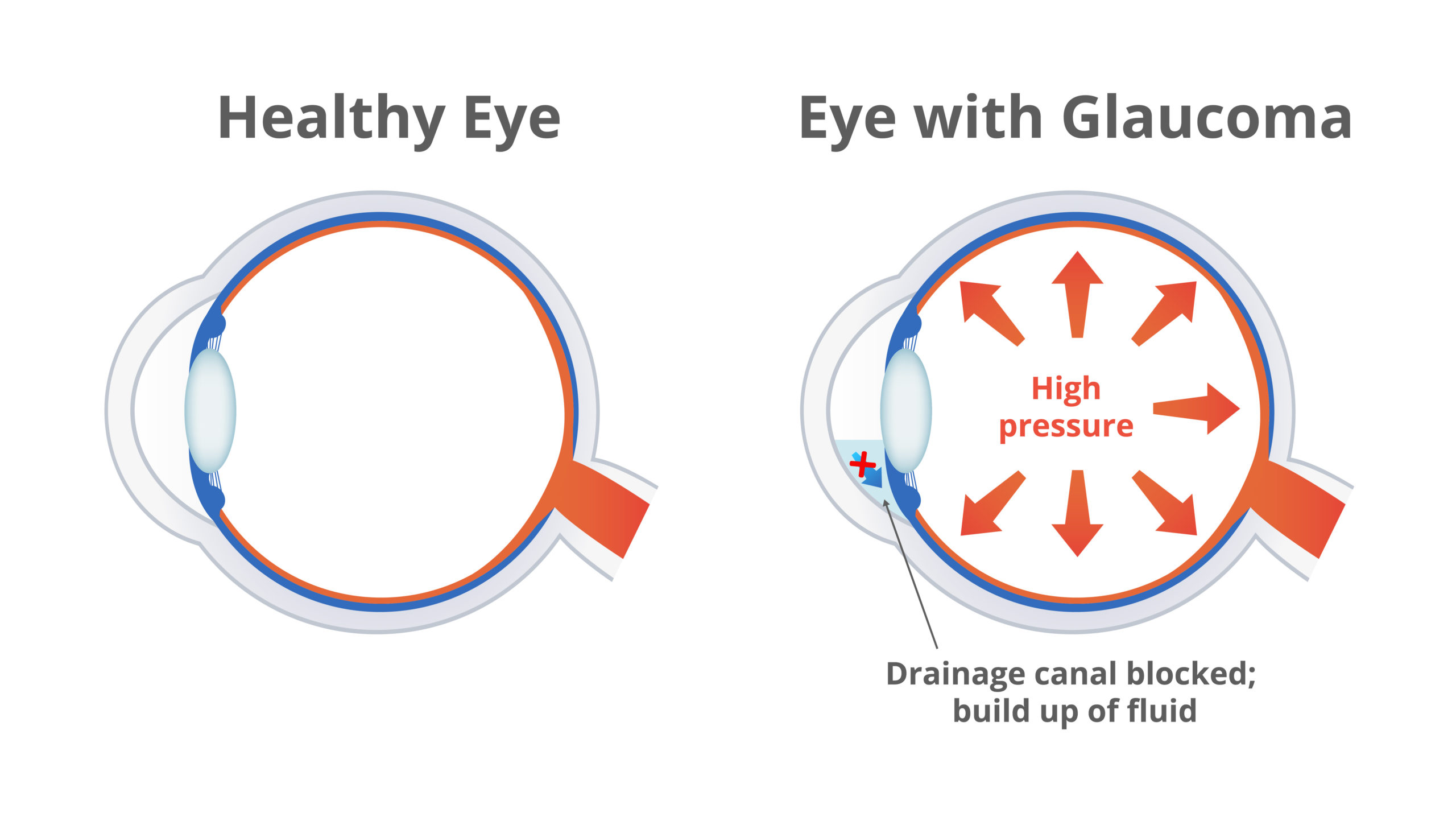Glaucoma Treatment


The second leading cause of blindness, glaucoma is a serious medical condition that affects more than 2.2 million Americans. The term glaucoma actually refers to a group of diseases that damage the eye’s optic nerve. The symptoms of glaucoma come on gradually and you cannot detect them yourself; regular professional eye examinations are the only way to find out if you have glaucoma. With early detection and continued treatment, vision can, in most cases, be saved.
FAQs
Glaucoma is actually a group of diseases that affect the optic nerve. As the progression of damage to the optical nerve continues, vision loss begins.
There are four main types of glaucoma:
- Open angle glaucoma, the most common type
- Closed/narrow angle glaucoma
- Secondary glaucoma – due to surgery or other eye diseases such as diabetes, eye inflammation, or trauma
- Congenital glaucoma –glaucoma that is present from birth or developed within the first year of life due to a number of malformations
Not everyone who has glaucoma goes blind. Those with closed angle glaucoma have a greater chance of severe vision loss. Early diagnosis is key, as early treatment can preserve vision. Adherence to treatment prescribed by your ophthalmologist will improve the chances of preserving your vision. Once you lose vision and have damage to the optic nerve from glaucoma, there is no reversing it.
Everyone has a risk of developing glaucoma. However, there are several factors that increase this risk:
- Age –risk increases significantly after age 60
- Race – African or Hispanic ancestry
- Family history of glaucoma
- Ocular factors such as farsightedness or nearsightedness, past eye injury, or having a thinner cornea
- Systemic factors such as diabetes mellitus, high blood pressure, migraines, thyroid disease and obstructive sleep apnea
- Some medications, such as steroids
It is very important to have regular eye exams. An optometrist or ophthalmologist will perform a complete exam, and, if signs of glaucoma are present, you will be referred for a comprehensive glaucoma evaluation. During the glaucoma evaluation, your eye pressure will be measured, the thickness of your cornea will be measured, your eye’s drainage angle will be evaluated, and the optic nerve will be inspected through a series of photos. Your field of vision will also be tested in order to see if any vision loss has occurred.
There are several routes for treating glaucoma and compliance with your doctor's treatment plan is imperative. Treatment plans include:
- Medication, through the use of drops
- Laser treatment, which allows fluid buildup to drain from the eye
- urgery, which creates a new avenue for fluid to drain from the eye
Current treatments can slow down the damage to cells in the eye so that functional vision is retained through the lowering of eye pressure. If eye pressure is lowered to a safe level, you will still need constant monitoring by an ophthalmologist to ensure the glaucoma does not progress.


